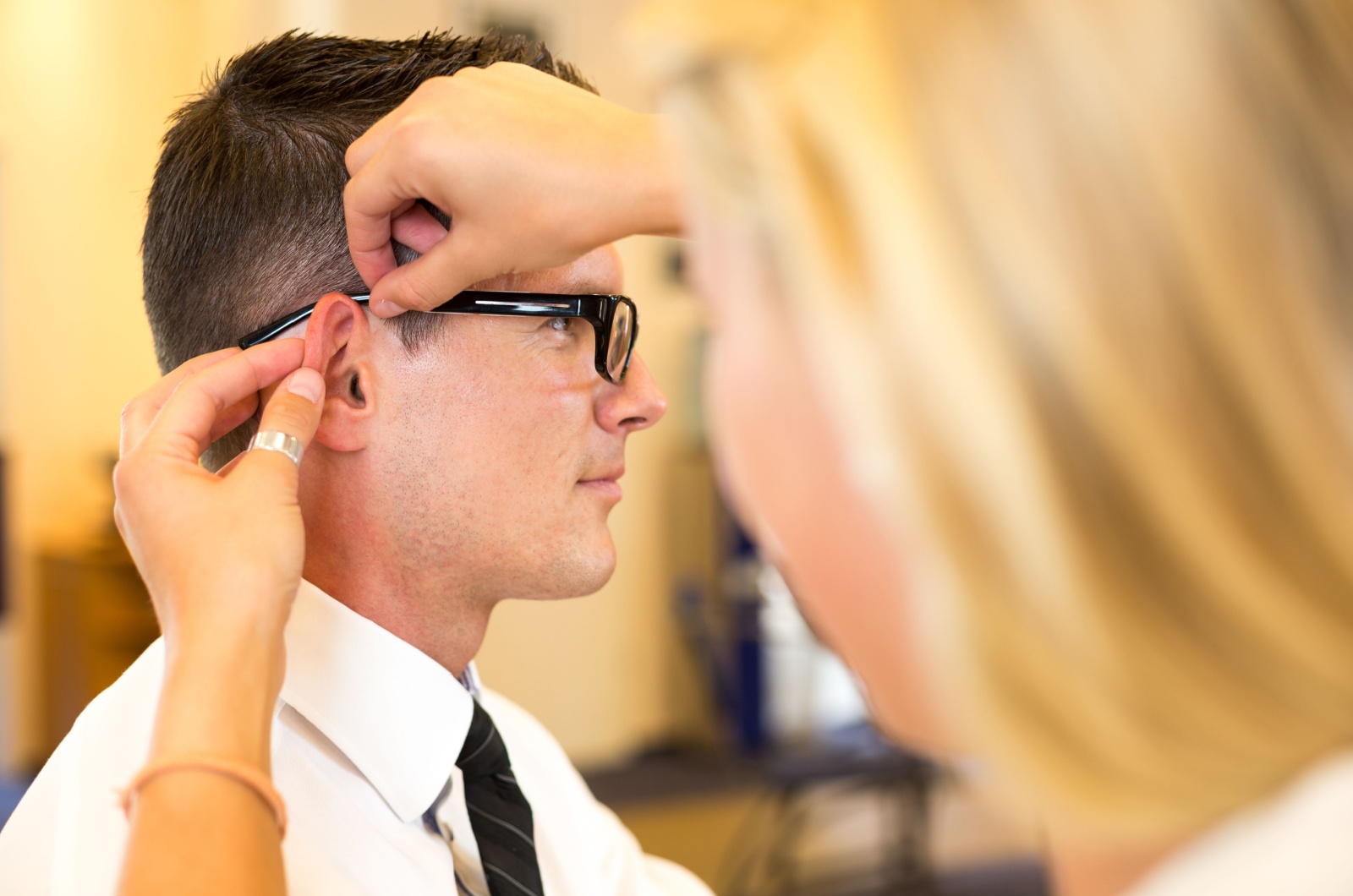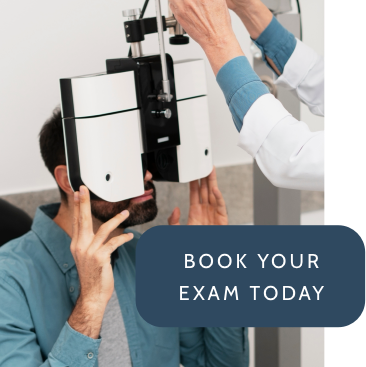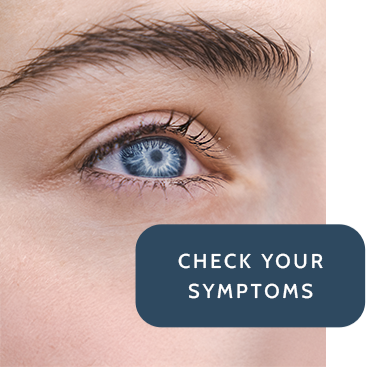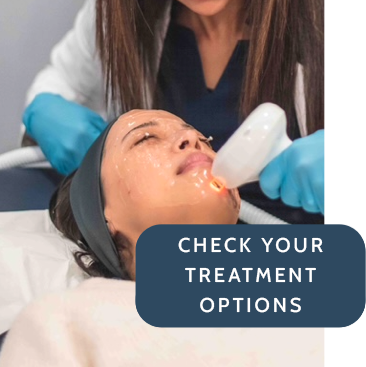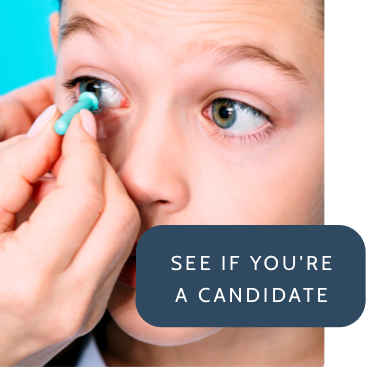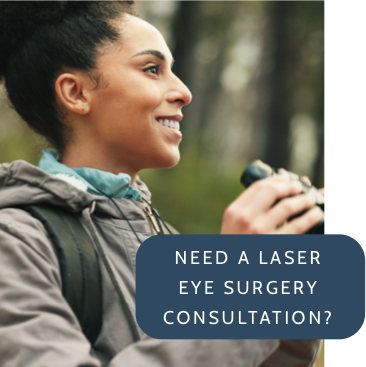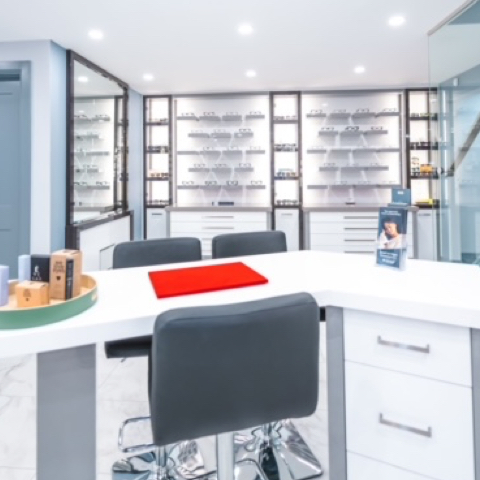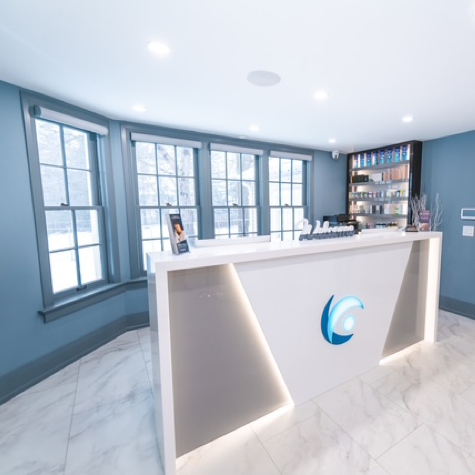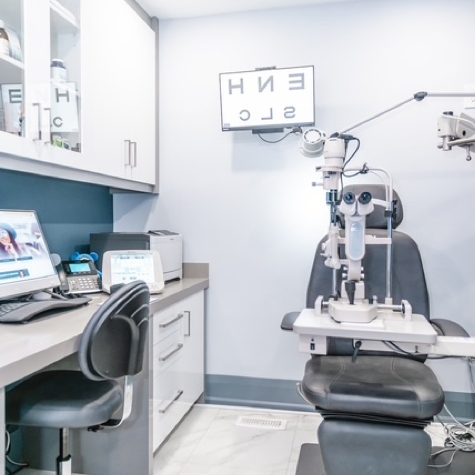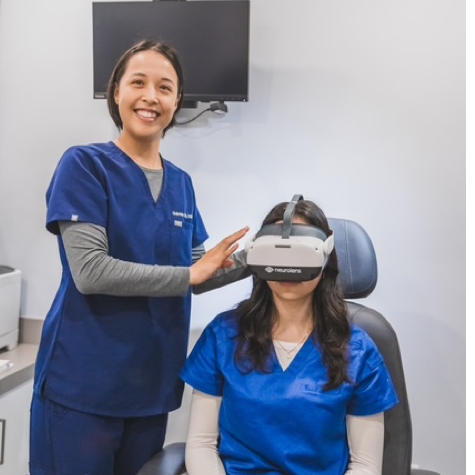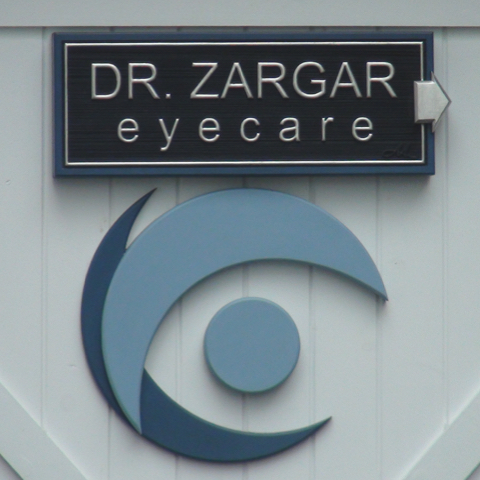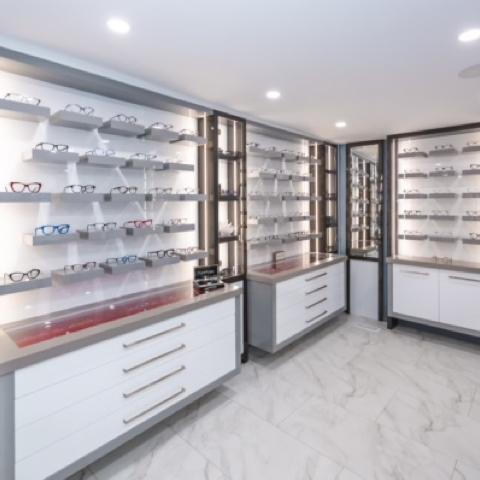Glasses are an essential tool for better vision. They’re also a fashion statement and a part of daily life for eyeglass wearers. Glasses should sit comfortably on your nose and behind the ears and provide vision clarity without symptoms such as eye strain or headaches.
If you’re struggling to keep your glasses from slipping or if you’re feeling pressure points on your nose or ears, your glasses may need adjusting. Browsing different options can help you find more suitable frames. Your eye doctor or optician can provide personalized advice to help you find the right glasses for your needs.
Eyeglass Frame Measurements
When you have an eye exam, your eye doctor may take several measurements to order your eyeglasses.
These measurements for the frame include:
- Lens width: The length of each eyeglass lens measured horizontally
- Bridge width: The distance between the lenses
- Temple length: The length of the temple or arm measures from the hinge
Signs Your Glasses Don’t Fit Correctly
Sometimes, it’s obvious your glasses aren’t fitting well—but other times, you might not realize it’s a problem until it affects your comfort or vision.
Here are some clear signs that your glasses might need adjustment.
Slipping or Falling Down
Do your glasses constantly slide down your nose? While this can be common in hot or humid weather, it might also indicate an issue with the fit of the nose pads or the frame width.
Nose Pads Not Adjusted Correctly
Do your glasses feel uncomfortable on the nose? If the nose pads aren’t sitting parallel to your nose or are digging into your skin, it’s a problem.
Aside from being uncomfortable, a crooked or improper adjustment can throw off the alignment of your lenses, affecting how well you see.
Uneven Pressure on Ears or Nose
Feeling soreness behind your ears or on the bridge of your nose? Uneven pressure can result from misaligned temple arms, ill-fitting frame size, or frames that fit too tight at the temples or ears. These can lead to headaches and unwanted red marks.
How to Determine a Proper Glasses Fit
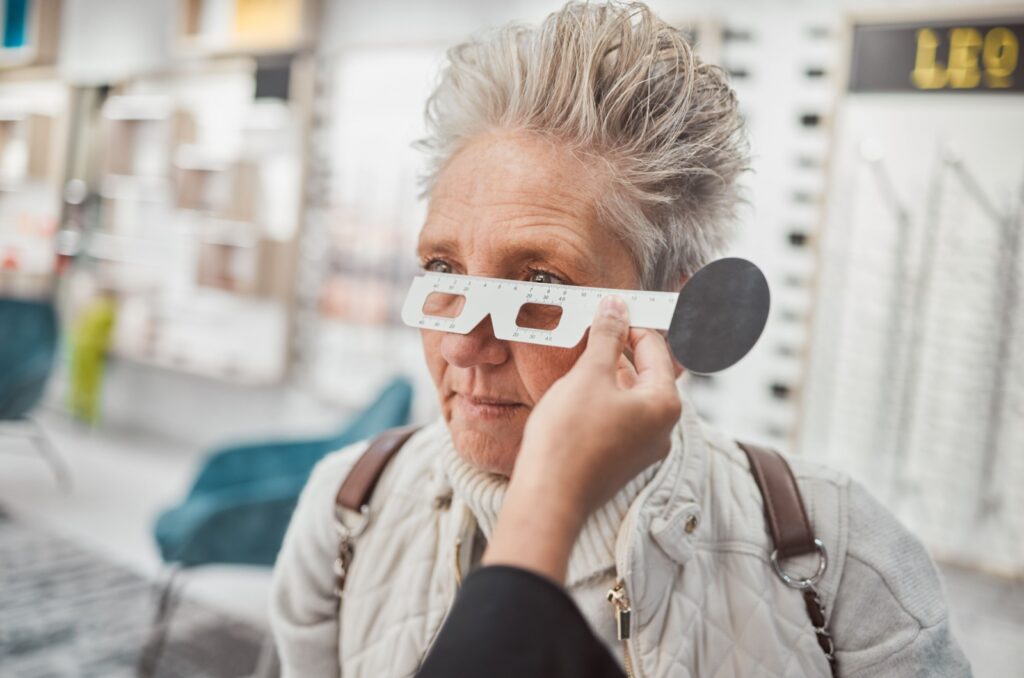
Avoid rushing to adjust your glasses on your own at home. First, assess their fit and then visit your eye doctor. Here’s how you can tell if your glasses are sitting just right.
Check Where Your Glasses Sit
Regardless of your face shape, glasses should sit in the middle of your face. The frame width should be the same as your face width at the temples.
Check the Nose Bridge
The frame should sit snugly on the bridge of your nose without pinching or leaving marks. If it’s too loose, the glasses will slip. If it’s too tight, you’ll feel constant pressure.
Assess the Temple Tips
The temple tips of your glasses should extend slightly beyond your ears and feel secure without digging into your skin. They should gently hug your head without bending inward too much so they don’t slip off when you shake or bend your head.
Verify the Pupillary Distance (PD)
Your lenses should align with your pupils for optimal vision, meaning each pupil must align to the center of each lens.
When your pupils and lenses aren’t aligned properly, you can experience blurry vision, eye strain, and headaches.
Solutions for Improperly Fitting Glasses
If you’ve assessed your eyeglasses fit and they’re not right, don’t worry—there are solutions to achieving a comfortable fit.
Here are some things your eye doctor or optician can do to help. They have the tools and the experience to make professional adjustments for a secure, comfortable fit.
Adjust Nose Pads
An eye care professional can gently adjust the nose pads with their fingers or a small tool to help your glasses sit evenly on both sides of your nose.
Use Eyewear Retainers
Eyewear retainers or anti-slip grips can be a lifesaver, especially if you’re active or experience frequent slipping. These handy accessories keep your glasses in place throughout your day.
Choose Different Frames
Different frame materials can make a big difference in how your glasses fit and feel. For example, lightweight frames may put less pressure on your nose and ears.
Aside from proper fit, your face shape can contribute to how well your glasses look and feel. Certain frame styles and shapes complement different face shapes better than others. For personalized guidance, make sure to ask your optometrist or optician.
Enhancing Comfort & Vision with Well-Fitting Glasses
Glasses with corrective lenses are meant to improve your vision and offer comfort—not add to your daily challenges. The right glasses are aligned with your face shape and measurements, enhancing how you look, feel, and see the world. If your glasses don’t fit well, book an appointment with our team at Dr. Zargar Eyecare. Professionally fitted glasses can transform your daily experience and provide comfort and clear vision.

